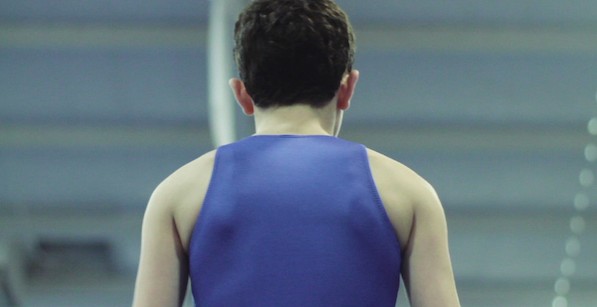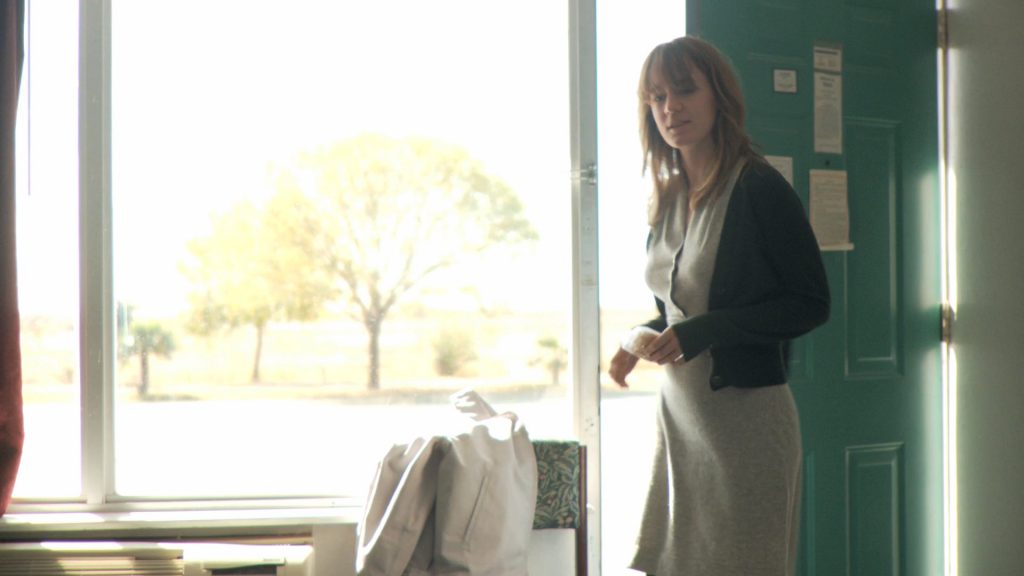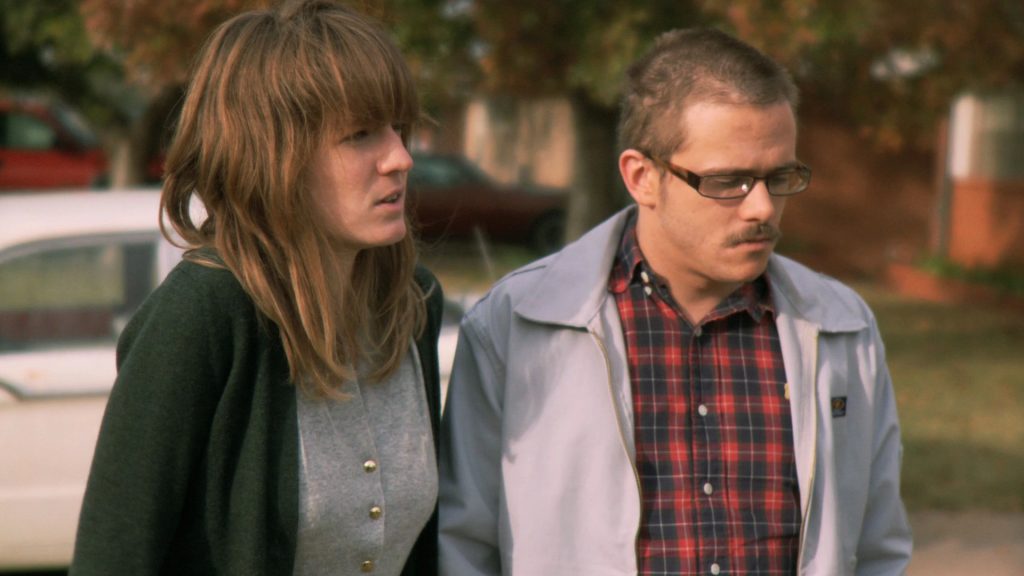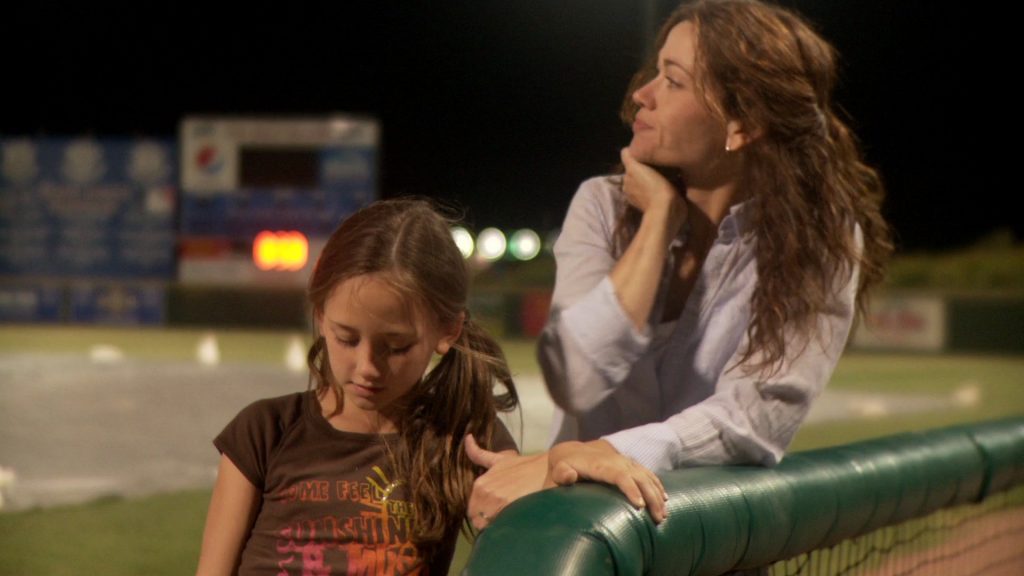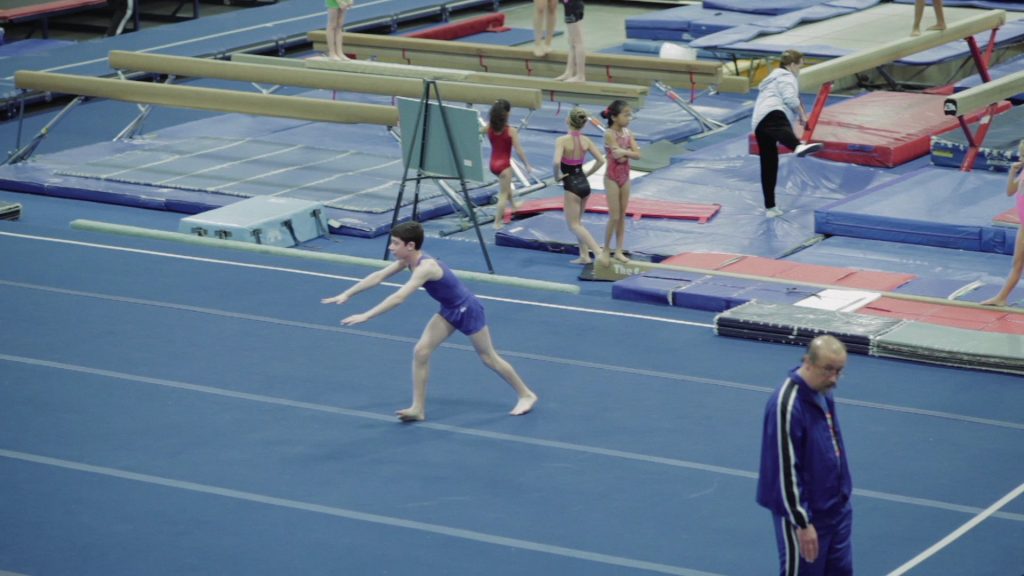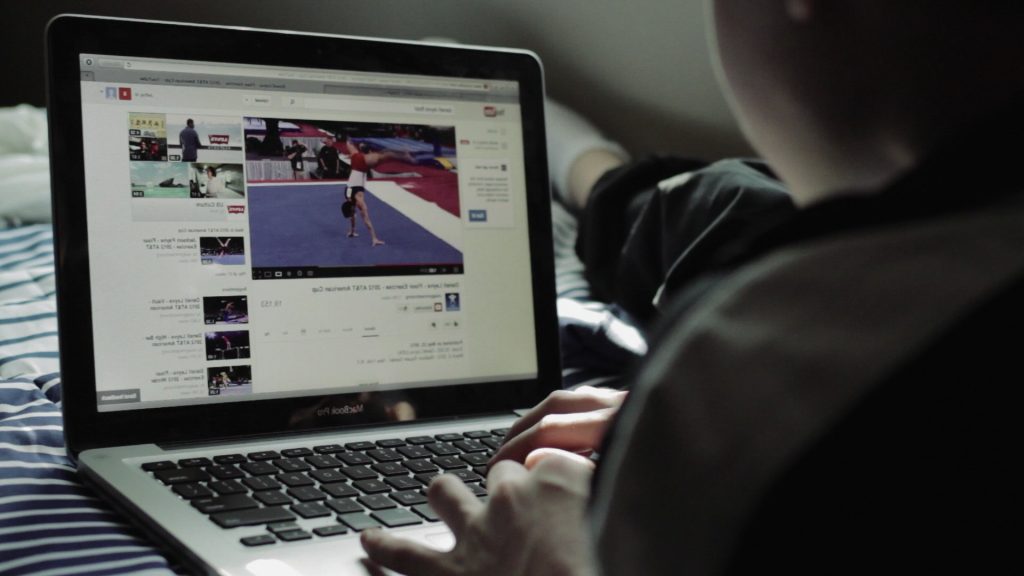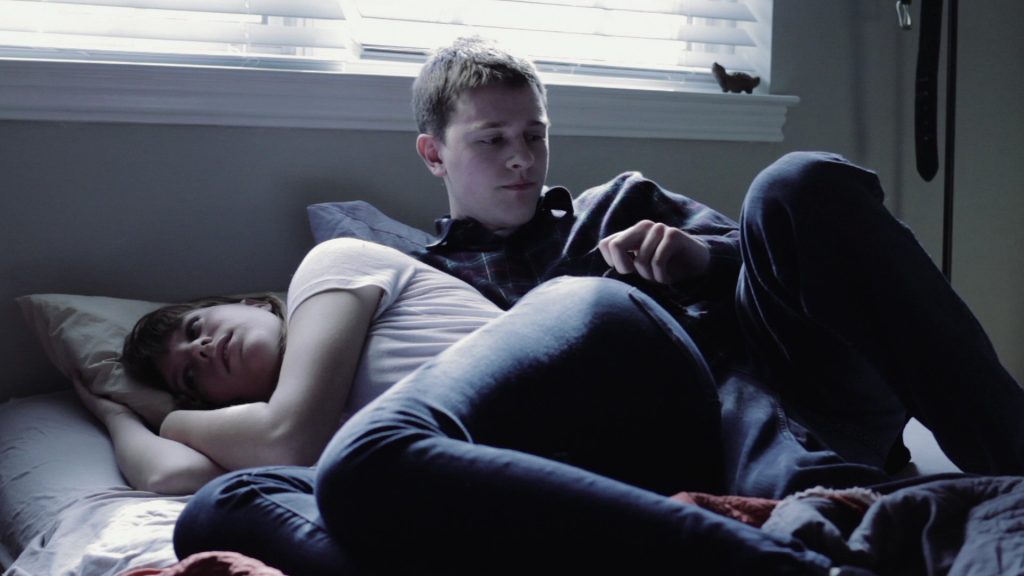Dallas-based writer, director and editor Daniel Laabs was already chief programmer of a student film festival with the University of Texas at Arlington when he made his own first film. That short, sleet/snow, a subtly flavorful snapshot of two platonic friends considering their relationship boundaries during a road trip, was selected for the Dallas International Film Festival in 2009. Since then he’s continued with post-college programming gigs while doing editing work on various commercial projects and making additional acclaimed narrative shorts.
The latter have included two co-directed miniatures, the musical drama Haggle (collaborating with Noe Medrano, Jr.) and intimate slice of family life 8 (with Julie Gould), which won the Grand Jury Prize for Best Texas Short at SXSW in 2011. His latest, Easy, a solo directorial exercise about a young male gymnast on the brink of adolescence, packs admirable dramatic and thematic substance into twelve minutes that never feel remotely schematic. Keyframe checked in with Laabs just before its premiere at this year’s South by Southwest event to be followed by its release here on Fandor.
Keyframe: You’ve been a film programmer for several festivals, starting even before you began making films yourself. How do you think that experience has influenced your filmmaking? And what have been the biggest surprises being on the other side as a submitting filmmaker?
Daniel Laabs: When I was first starting out, it was helpful to watch hundreds of hours of short film; I feel like that helped me to develop my taste, what I like and don’t like about shorts. At this point in my career, however, it makes the whole process much more nerve-wracking. Being a part of the programming process is both re-assuring and terrifying. It affords plenty of healthy reminders along the way of how even the smallest thing can be the difference in a film playing a festival or not. I’m a lot harsher of a critic when it comes to looking at my work because of it. That said, it continues to be a great way of seeing how other films are made and what people are expressing through their work.
Keyframe: Your films seem to consist of small incidents that reveal larger issues between characters, without their precise background circumstances being spelled out. More than many short films made now, they’re close in feel to literary short stories. How complete is your vision of what will be on screen, and what the backstory is, when you go to shoot?
Laabs: I do write character backstories and I draw storyboards for certain scenes. I’d had this film in my head for a few years prior to actually filming it, so I’d been developing ideas for a while. Cinematically, most of my favorite filmmakers make verite-style documentaries. With those films, you learn about who a character is by experiencing their perspective. You are told next to nothing about them, but by the end of the film you really know who they are. It is sort of difficult to do that with shorts. I tend to film a lot of scenes that don’t make the final cut. Some of the scenes I shoot because it helps the actor with a performance for another scene. It differs from film to film as to how much gets cut, but usually, for a ten-minute film, the early edits are thirty to forty minutes in length. The final cut of my short films are always very different from their scripts, but they are still the ideas I initially set out to communicate.
Keyframe: You co-directed 8 with Julie Gould, who with her own daughter played a mother and daughter commemorating a husband/father’s death. How did that project come into being, and how autobiographical is it for the two of them?
Laabs: I was actually working on writing Easy when Julie approached me about 8. I’d known Julie for a while. I knew that she had lost her husband a number of years ago and was living as a single mom. We both pushed each other creatively, and in the end we really had a consistent vision for making a very simple film. The script was more or less an outline of things they actually do on that anniversary. We actually filmed them going through all those activities twice and the final film is essentially a montage of those two days of shooting. During certain sequences I’d ask Julie questions about her husband, and she’d answer like she was talking to her daughter. It was very unconventional, but when I watch it now I am mostly just so impressed by Julie’s bravery. 8 is honest in ways neither of us anticipated. When I showed the film to my mom, that was when it clicked for me: Julie was making the film for her daughter, and I was making it for my mother.
Keyframe: Easy deals with a lot of complicated issues, including one that seems especially public after the recent Winter Olympics—how certain sports are perceived as being ‘manly’ or not, and the connected public assumptions about athletes’ sexual orientation. How did you get interested in that topic?
Laabs: I didn’t come out until I was twenty-seven, which is only about three years ago. When I decided to return to making Easy, after 8 was finished, I was thinking about these ideas a lot. I was very afraid of the idea of being gay for many, many years, and now I was asking myself, ‘Why?’ I had figured out that I was gay around the time I was ten. I specifically remember my family talking about people that came out around then, like Ellen [DeGeneres], and them not being supportive of her choice. Everyone was talking about whether or not Ellen was allowed to say she was gay. That was the conversation I heard and occasionally participated in. As a kid I was very interested in being a comedian, or an actor. So it was at the forefront of my attention at that age. Today, with the Internet, that conversation is all over the place, most recently surrounding professional sports. I wanted to show the effect that conversation can have on people. I didn’t want to make a big statement, but in this case, this topic directly effects who the main character is. It was also part of my journey in finding an answer to that question of why I hadn’t come out sooner.
Keyframe: Its protagonist is at an age when you’re just beginning to grasp adult identities and issues, which makes the Internet—where people so often make anonymous, cruel snap judgements—a potentially very damaging place. The moment when he posts an innocuous compliment about a gymnast and gets a ‘U must be a fag LOL’-type response is powerful and upsetting, for both him and the viewer.
Laabs: Exactly. That’s such a terrifying idea, but it does actually happen. It is one of the places in the film where the title, Easy, works as a very harsh commentary. As in, it is very easy to be hurtful online. In real life, I feel like, moments later there would be someone who’d see that comment and flag it as inappropriate or reply in defense of Jeffery. However, the damage would still have been done. It is the same reason why what is happening with gay rights in Russia, Arizona, Mississippi, etc. is so, so important to talk about. Visibility leads to change. Today I feel like bullying is something that people are becoming very sensitive to, and that is because we talk about it.
Keyframe: You spent six months in rehearsal with the cast of Easy—very unusual for a short, or a feature for that matter. How did that shape or re-shape film? Was it an ideal way to work?
Laabs: It was ideal in the end. I rewrote the film extensively during that period. The production was delayed for six months after casting because of budgetary reasons, and I asked the actors if they were interested in doing rehearsals and workshopping the script in the interim. Luckily they all said yes. I also felt pretty rusty as a director; I hadn’t worked from a real script for five years at that point. I come from an improv comedy background, so I like to work with loose scripts. These actors worked best with concrete scripts. So, in a way, the rehearsals were a training period for me as well and a way for the actors to become more involved with the writing process.
Keyframe: What are your current projects, and what do you think might be on the horizon?
Laabs: I have been working on my first feature-length script for the last couple of years and that is getting very close to moving into pre-production. The project is very similar tonally and thematically to Easy. I am also in pre-production on a new short film called, Hip Hop Recuperative Dance Therapy, which is about a group therapy session where people use improvisational dancing to hip hop beats to overcome past traumas. I also have a procedural documentary in development about public radio.

